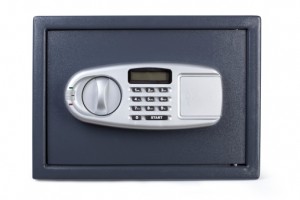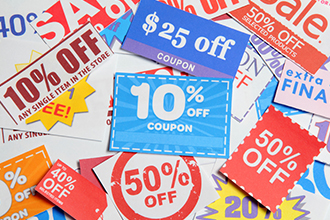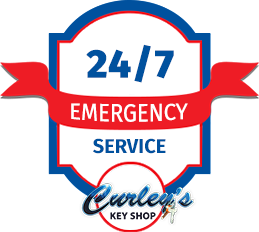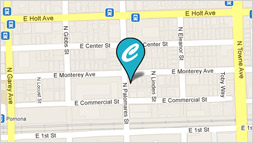
What to Store in a Home Safe
Home safes are best used for storing hard-to-replace items that are valuable or important to you and that you use on a semi-frequent basis. For example, you might want to keep your tax records, passports, beloved family photos, or other important documents in a home safe so that you can access them at your convenience. For extremely important or valuable items that you don’t need to access often, like the deed to your home, your rare coin collection, or valuable heirloom jewelry, a safe deposit box at your local bank would actually provide better protection.
Fire Protection vs Theft Protection
Home safes can protect their contents from fire, theft, or both, depending on the design of the safe.
Safes that provide fire protection should carry a rating from a testing organization like Underwriters Laboratories or Intertek, which will tell you how well they deliver on their promises. In general, you need a safe that is guaranteed to keep interior temperatures below 350 degrees in order to protect paper documents, and one that is guaranteed to keep temperatures below 125 degrees in order to protect computer disks or DVDs. Most home safes can maintain this level of protection for about 30 minutes. This is considered sufficient because most fires move through a room in about 20 minutes. In order to prevent the contents of your safe from being damaged by water during firefighting efforts, be sure to choose a safe that offers water resistance as well as fire protection.
Some safes that provide theft protection are also tested by Underwriters Laboratory to determine their ability to withstand attacks from thieves with blowtorches and other tools. However, most home safes don’t need to withstand this type of attack. The simple fact that the safe is bulky and heavy will deter most thieves from attempting to take or open it. Most thieves prefer to grab what they see and run. If you want added theft protection, you can get a home safe with a bolt-down kit, or else install the safe in a wall.
Safe Features and Prices
The cost of your home safe will depend on the size, level of protection, and features that it offers. For most consumers, a small 1.2-1.3 cubic foot safe is sufficient. It offers enough space to store a foot-high stack of standard letter size papers, and it will cost $150 to $300 depending on the other features. The bigger the safe is and the more advanced its features are, the more it will cost. Your friendly neighborhood locksmith at Curley’s Key Shop can help you weigh the pros and cons of any extra features and pick the best home safe for you.






 Phone:
Phone: